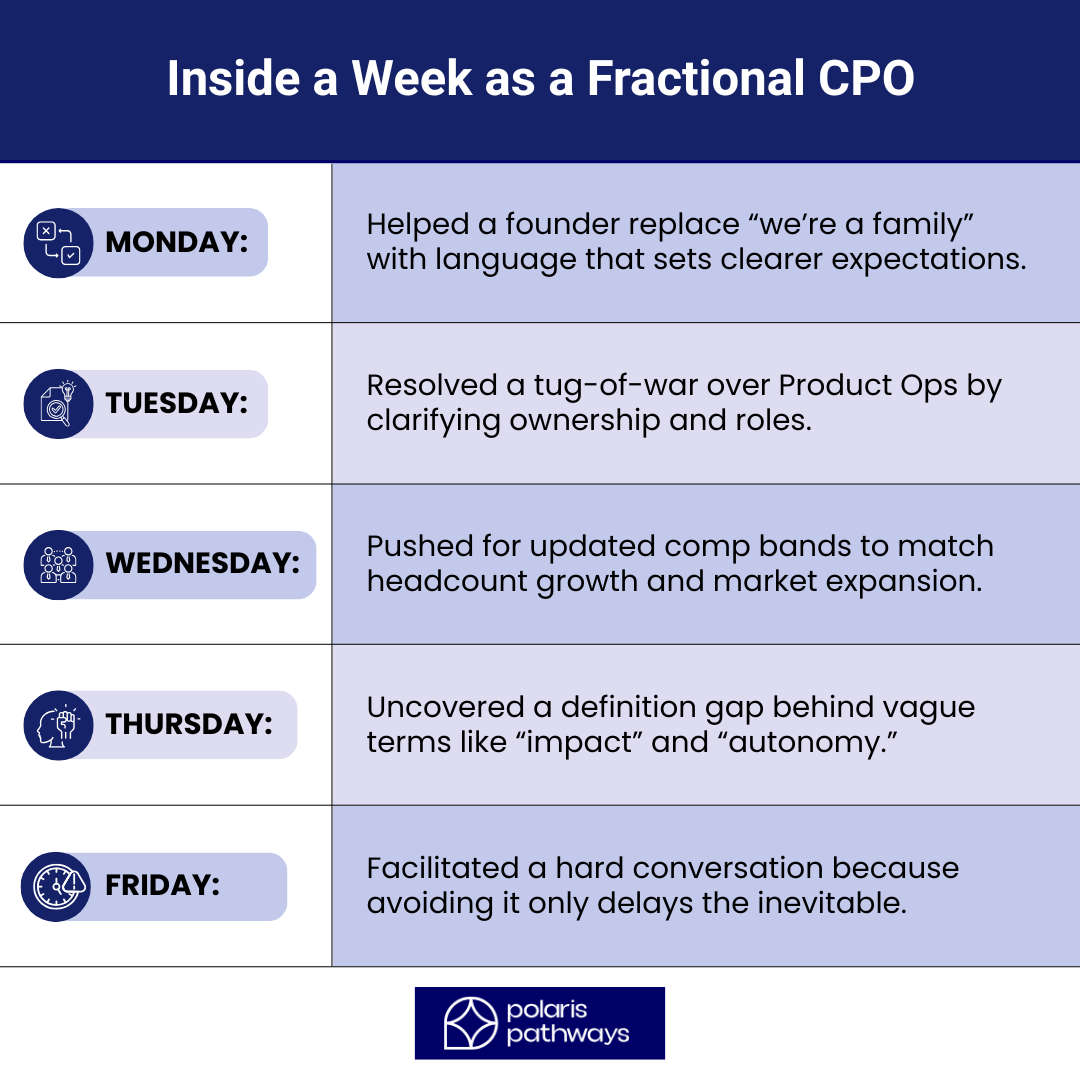
blogs
July 22, 2025
A fractional CPO’s week isn’t linear.
It’s a mix of language, politics, clarity, and hard truths.
Monday:
Tried to coach a founder out of using “we’re a family” in their onboarding materials.
Language isn’t neutral.
The words you choose in onboarding signal what’s rewarded.
“Family” can blur lines of accountability. Clear language builds healthier expectations—and protects both performance and belonging.
We settled on “we take our work seriously, and we take care of each other.”
Progress.
“We break this pattern down more in this post on how people issues usually trace back to leadership.”
Tuesday:
Two execs are in a cold war over who owns Product Ops.
Neither wants it. Both blame each other.
“Ownership gaps don’t stay quiet—they get political.”
When no one owns a function, it becomes a blame zone. Clear swimlanes aren’t bureaucracy—they’re shields against passive turf wars.
I facilitated a working session that ended with a shared doc, clearer roles, and only one eye roll. Victory.
Wednesday:
Got asked if we need to “really” update our compensation bands this year.
This from a company that’s doubled headcount and entered two new markets.
Yes. Yes, we do.
Founders often want more delegation—but without clear role definitions or authority lines, delegation turns into confusion.
You can’t ask for ownership if you haven’t defined the playing field.

Thursday:
Spoke to three team members across functions. All using the same words to describe wildly different expectations: “impact,” “autonomy,” and “accountability.”
Translation: we’ve got a definition problem, not a motivation one.
The Thursday entry sets up a definition gap across the team—perfect segue to this:
Clarity isn’t a nice-to-have. It’s the core product of strategic HR. Titles, values, and compensation frameworks aren’t checkboxes—they’re alignment tools. When they’re vague, execution suffers.
Friday:
Debriefed on an exit. It wasn’t a “bad fit.” It was a slow-motion mismatch no one wanted to name.
Founders don’t avoid hard conversations because they’re soft.
They avoid them because they’re hopeful.
Sometimes my job is holding up the mirror—and staying in the room after.
Hope is not a retention strategy.
When we delay hard conversations, we trade discomfort now for disruption later. Naming misfit early isn’t cruel—it’s kind.
What being a fractional CPO actually means:
Org charts don’t scale companies. Decision rights do.
When everyone’s asking, “Do I need to check with someone first?”—you’re no longer nimble, just noisy. Great org design removes hesitation, not just silos.
You can’t do this job if you need constant credit.
You can do it if you’re okay being the person everyone privately thanks six months later.
“Designing with just enough structure to scale without stalling” (see how we’ve explored this more in our post on building people strategy before it breaks).
What I’ve learned:
Also: never underestimate the power of a well-timed Loom.
— Michelle
Before you go, a few questions to sit with:
Want to dig deeper?